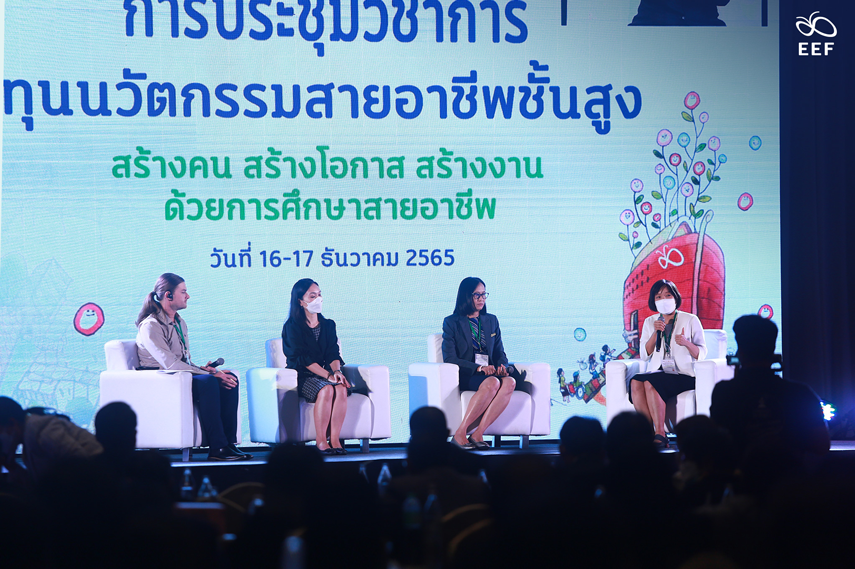
According to studies conducted in Thailand and Australia, vocational students are at a higher risk of developing mental health problems than academic students, university students, or the general population. While both the public and education sectors are trying to find a solution, the lack of data and the lack of understanding of mental health among students themselves contribute to the complexity of solving the issue.
In Australia, there are 3,529 registered vocational training organizations with 4.3 million students, 79.5% of whom are aged 15–24. A large proportion of these students are at risk. They are unemployed or in a financially risky situation. The financial stress exposed these students to an even higher risk of distress, impacting their academic performance, which resulted in low completion rates.
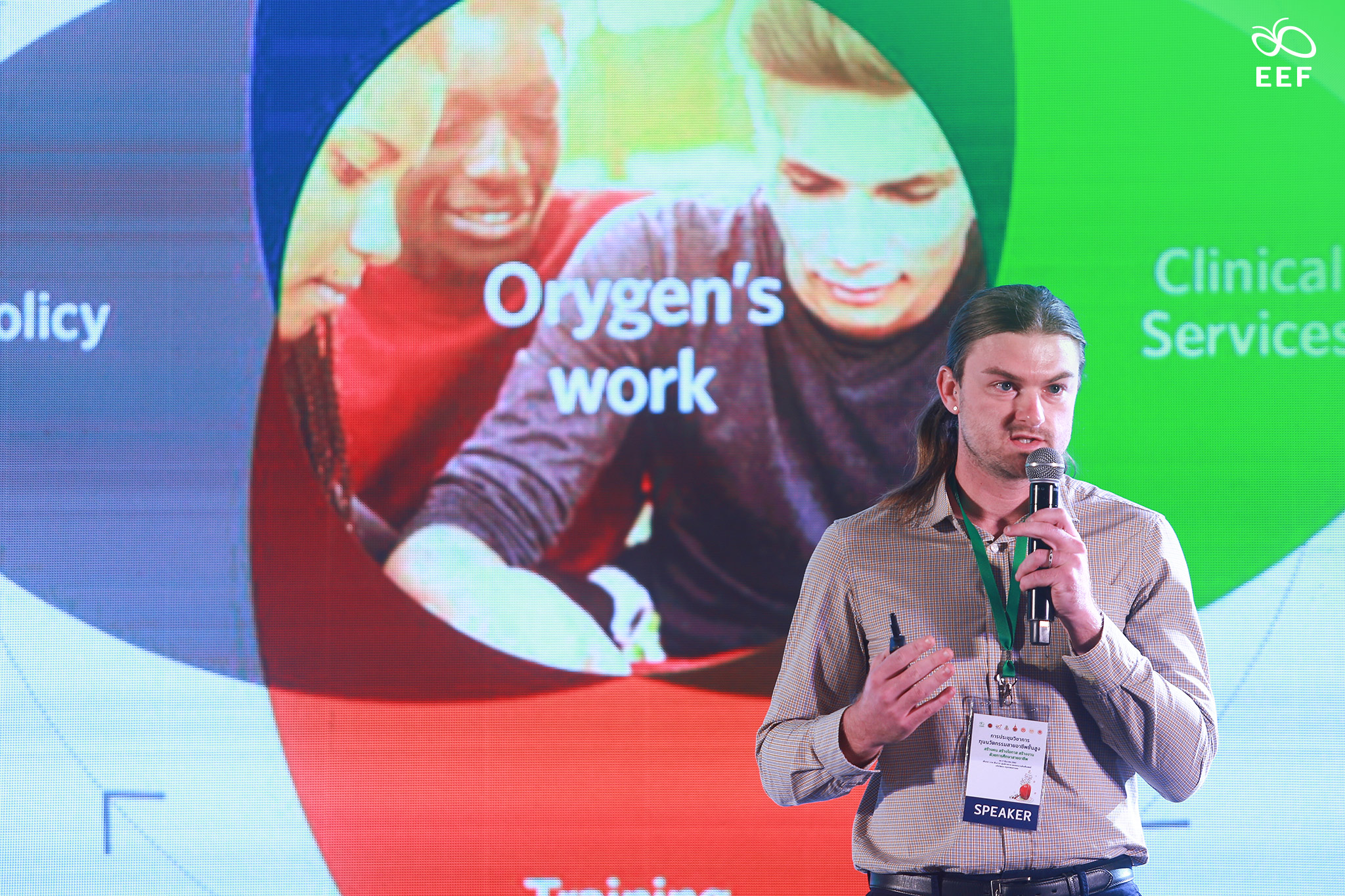 James Whiting, Career Projects Innovation Lead at Orygen in Melbourne, Australia
James Whiting, Career Projects Innovation Lead at Orygen in Melbourne, Australia
According to James Whiting, Career Projects Innovation Lead at Orygen in Melbourne, Australia, there is still a low rate of disclosure and help-seeking. Students still do not feel secure enough to talk about mental health because they fear it could impact their education and future employment, while teachers do not yet know how to talk about it and provide support for students.
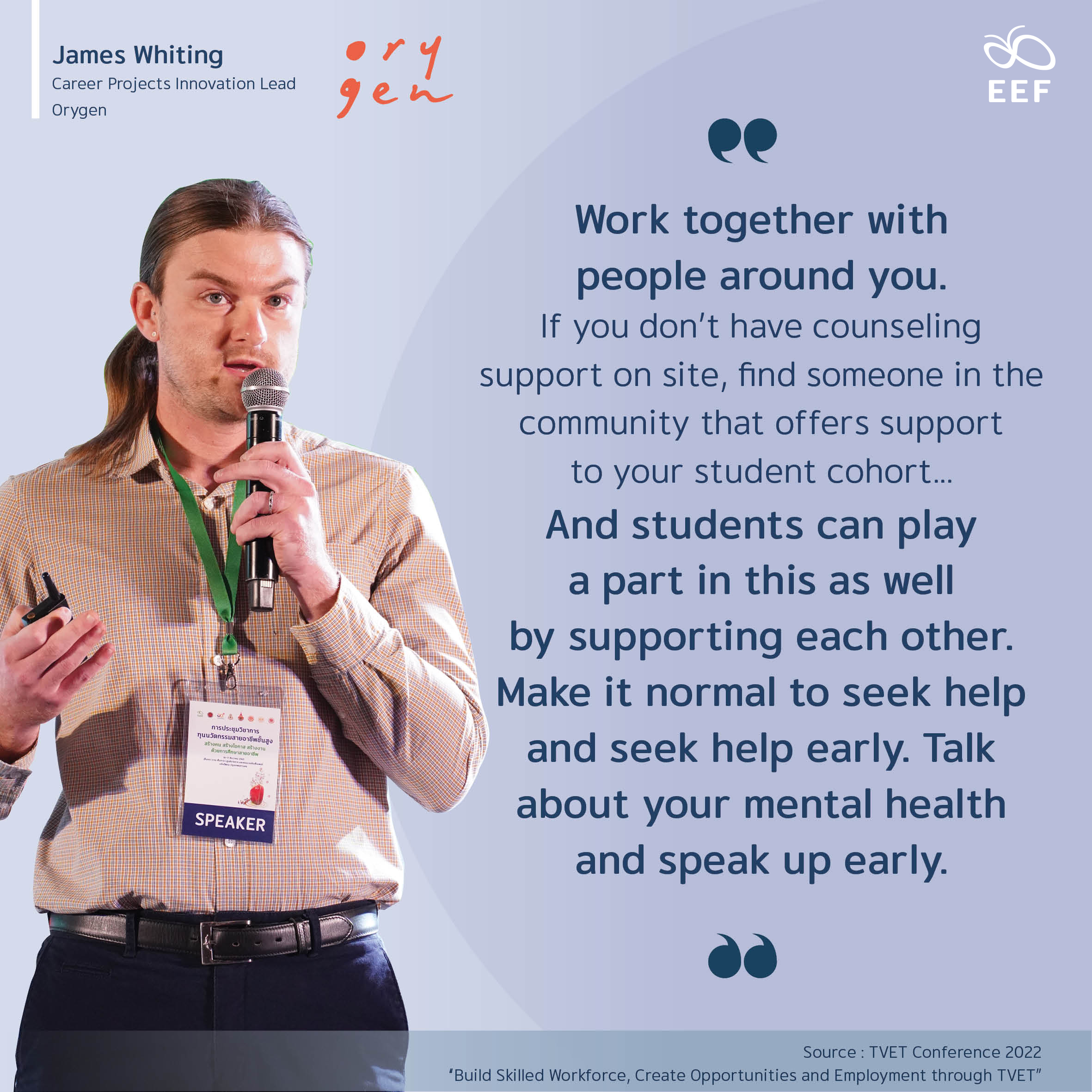
For instance, the Victorian Tertiary Admissions Centre (VTAC) project is designed to develop resources for the education sector and also to help vocational students understand what support they need, the role of mental health, and where to get support.
Through VTAC, students can apply to multiple education institutions, including technical education and universities. It will then collect data on student post-school preferences, geography and social determinants, and mental health. Students will get special consideration in the education sector, while educational institutions will have more accessible data on students.
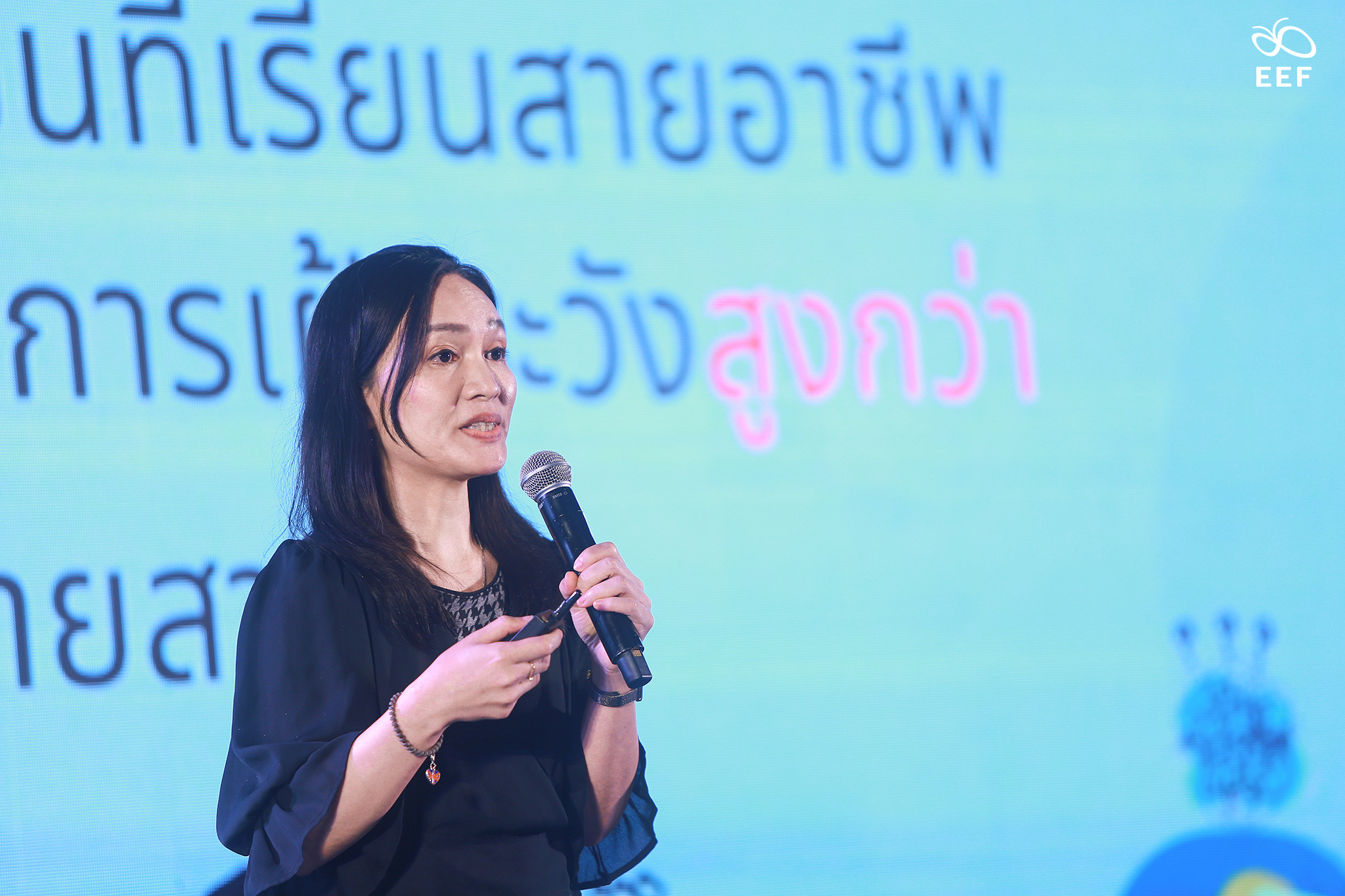 Sutra Urapisithiwongse, M.D., Deputy Director, Child, and Adolescent Mental Health, Rajanagarindra Institute
Sutra Urapisithiwongse, M.D., Deputy Director, Child, and Adolescent Mental Health, Rajanagarindra Institute
Thailand’s situation is similar. Sutra Urapisithiwongse, M.D., Deputy Director, Child, and Adolescent Mental Health, Rajanagarindra Institute, stated that vocational students in Thailand are at higher risk for both mental and physical health. They have a higher rate of engaging in sexual activities. There is a higher rate of alcohol consumption and drug use, which leads to road accidents and violence among friends and partners. These are both causes and effects of their mental health issues.
Equity Vocational Care is a project that aims to raise awareness about mental health issues among vocational students as well as bridge the gap between institutions and hospitals. There are three stages of help, each divided into a pyramid shape. The foundation is called “Universal Prevention”, which targets general students. This is to help them build their self-esteem, good health, personal safety, and trust among friends and family to prevent mental health issues.
The middle part is “Targeted Prevention.” Teachers will give counseling, making students feel at ease when discussing mental health with teachers. The tip of the pyramid is “Treatment.” In this stage, students will consult doctors directly. Sutra stated that students who joined the program tended to have a better mental state. They learn how to manage stress and understand themselves, as well as when to seek help.
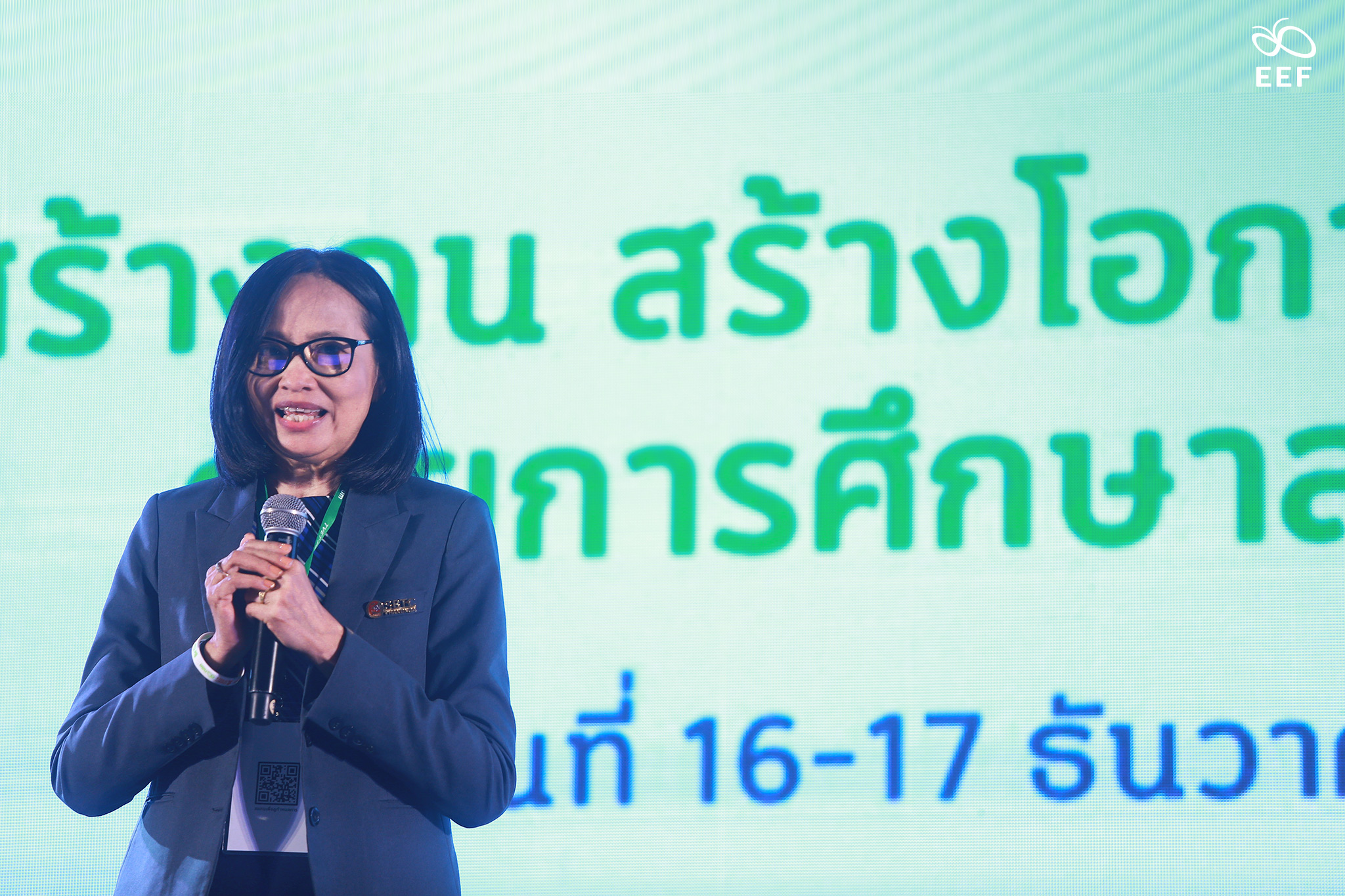 Miss Pratin Leanchumroon, the teacher at Phang-Nga Technical College and
Miss Pratin Leanchumroon, the teacher at Phang-Nga Technical College and
recipient of the Princess Maha Chakri Award 2021
Another project that helps vocational students’ mental health is initiated by Phang-Nga Technical College in the south of Thailand. Miss Pratin Leanchumroon, the teacher at Phang-Nga Technical College and recipient of the Princess Maha Chakri Award 2021, explained that the project uses peer support and also encourages students to organize festive events together to ease their stress.
The college provides different financial aid to support smart students, students from poor families, and students from remote areas. Because of their family’s financial situation and some enduring violence within the family, these students suffer stress and mental health illnesses. These students live together in a dormitory provided by the college, but because of their different academic backgrounds and the aim of the project—to produce skilled individuals for the future of work—they have to study for six days a week. As a result, they are more vulnerable to mental health issues.
 Vocational education and training (VET) students’ mental health and support: experiences from Australian and Thailand
Vocational education and training (VET) students’ mental health and support: experiences from Australian and Thailand
Therefore, Miss Pratin stated that the college encouraged students to work together in organizing all kinds of festive events, from Loy Krathong to Christmas. The events will be planned by the students with minimal help from teachers. They can learn how to plan and work together, as well as spend time with their friends. Furthermore, teachers will have weekly meetings to discuss students’ situations. There will also be a bimonthly visit from a psychiatrist, both online and offline.
Source:

